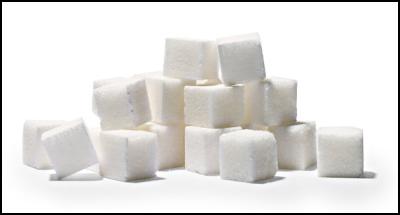Confused about the Health Affects of Sugar?
Confused about the Health Affects of Sugar?

The headlines are alarming, the effect that both added sugar and sugar in processed food is staggering.
So should we be alarmed or is this likely to be another area that science backtracks on? The answer to that question is Yes, we should be worried, there are real problems caused by the volume of sugar being consumed by the average person and when look back over the last decades the problem is getting worse, not better.
Developments in research and understanding the fields of nutrition and food safety change how we view products we consume and patterns of consumption can make the negative effects of foods more pronounced.
While these advances should be embraced, as each development leads to better understanding and health outcomes it can also be frustrating to the average consumer who can feel like just when they ‘get’ a good healthy eating plan together, the rules change.
The recommendations for sugar are a good example of how information can be confusing, some sources encourage the complete ban on all sugar containing products and others, such as the heart foundation recommend a reduction rather than complete removal.
It’s not so confusing though really, at no time in history has sugar ever been presented as a healthy food, but as in the past it took more effort to consume sugar it was less of a problem, we could ‘get away with it’.
In the past sugar was something that you could control through how much you added, in baking and to your cup of tea. This knowledge then transferred into the first generation of convenience food, if it was sweet, it had sugar in it.
What we now face as a
challenge is not that suddenly sugar is bad, but that it is
added, often quietly, to many of the processed foods we
consume, even when they aren’t sweet.
The availability
and often-reduced price of these foods compared to healthier
option make them an easy choice to the time poor or
uneducated consumer.
If you have taken on board the health message and want to consume less sugar- well done. There is no shortage of research that will confirm that reducing the amount of sugar, and thus the amount of processed food will contribute to your health. When it comes to sugar the less we consume the better, for some this may mean a complete removal from their diet, for others a reduction. It is important to note that sugar provides calories but has no nutritional benefit so there is no health benefit whatsoever in consuming it; it’s about taste and convenience.
There are some simple tips you can follow, including reading food labels; consuming as much food as possible in a state close to it’s natural form and avoiding sugary drinks. Consumers also need to be aware of marketing claims that do not provide the full nutritional picture of a product.
A sensible place
to start is by combining a diet low in processed food and
sugar combined with regular activity as the path to
long-term health.
For more advice and direction to
improve your health talk to your registered exercise
professional, they can offer some advice and are able to
refer you to sources of information and other nutritional
professionals that you can trust.
http://www.health.govt.nz/system/files/documents/publications/foodandnutritionguidelines-adults.pdf
http://www.heartfoundation.org.nz/uploads/Sugar_and_heart_health_final_with_addendum.pdf
ends


 NZCTU: Govt Vocational Education Reforms Will Cause Massive Disruption
NZCTU: Govt Vocational Education Reforms Will Cause Massive Disruption NZ Liberation Museum - Te Arawhata: Anzac Day Commemorations In France To Remember All New Zealand Soldiers
NZ Liberation Museum - Te Arawhata: Anzac Day Commemorations In France To Remember All New Zealand Soldiers Royal Commission Covid-19 Lessons Learned: We Want To Hear From As Many People As Possible, Says COVID-19 Inquiry Chair
Royal Commission Covid-19 Lessons Learned: We Want To Hear From As Many People As Possible, Says COVID-19 Inquiry Chair My ECE: Parents Reject ECE Deregulation - 'Children’s Safety Is Not Optional'
My ECE: Parents Reject ECE Deregulation - 'Children’s Safety Is Not Optional' TOI: TOI Pays Tribute To ANZACs With Raw And Reflective New Waiata, ‘Lest We Forget’
TOI: TOI Pays Tribute To ANZACs With Raw And Reflective New Waiata, ‘Lest We Forget’ FromThePit: FromThePit 2025 - New Zealand Music Photography Exhibition Returns To Celebrate Local Talent In NZ Music Month
FromThePit: FromThePit 2025 - New Zealand Music Photography Exhibition Returns To Celebrate Local Talent In NZ Music Month